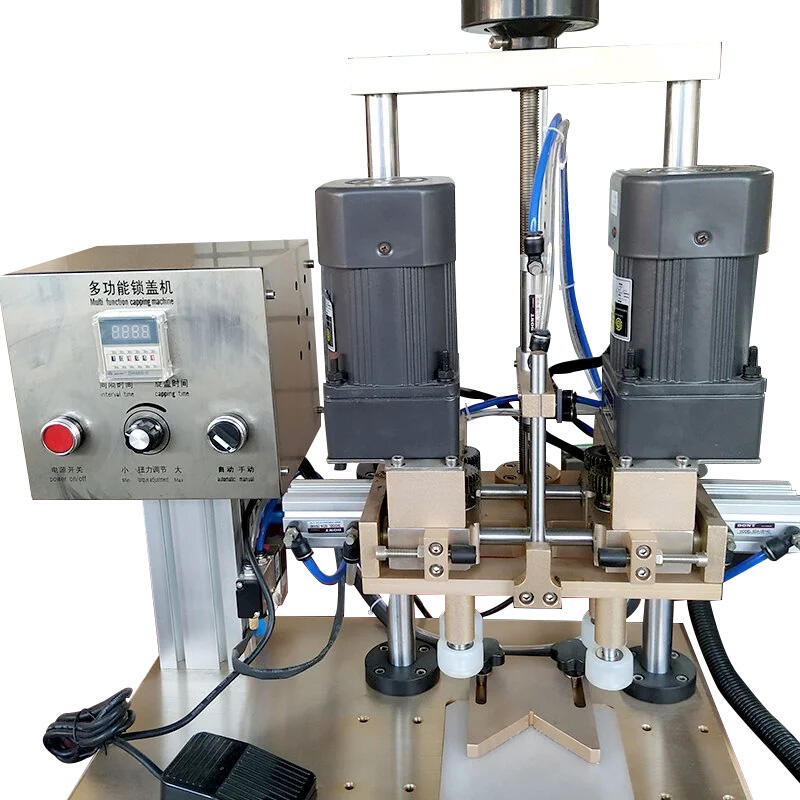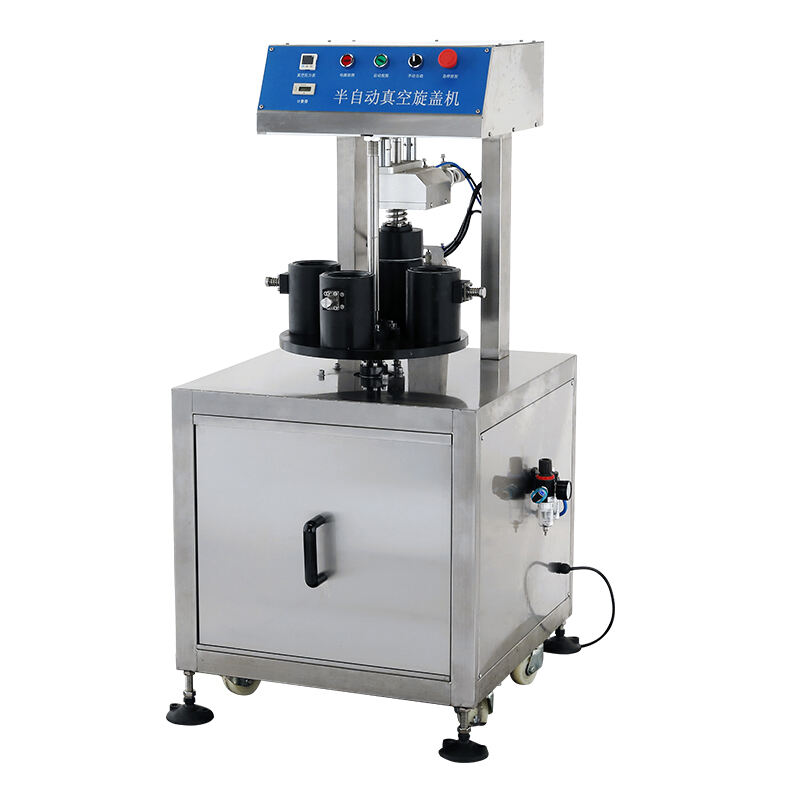Driving Efficiency With a High-Speed Packing Machine
A modern packing machine has become one of the most valuable assets in today’s manufacturing and distribution environments. By reducing the time and effort required for packaging, companies can achieve higher output without compromising quality. At the same time, automation ensures that repetitive tasks are completed with precision, reducing errors and waste.
Beyond improving efficiency, a packing machine also strengthens supply chain performance. It enables businesses to scale production smoothly, handle seasonal demand surges, and maintain consistent packaging standards. This combination of speed, accuracy, and adaptability makes it a central pillar of operational success.
Advancements In Packing Machine Technology
Integration Of Automation And AI
The latest packing machine designs integrate automation with artificial intelligence. These features allow machines to detect product variations, adjust packaging materials, and optimize throughput automatically. By reducing manual intervention, companies gain higher consistency and smoother workflows. This is especially important in industries like food and pharmaceuticals, where strict packaging standards are non-negotiable.
AI-enhanced systems also provide predictive insights, alerting operators when efficiency drops or maintenance is needed. Instead of waiting for downtime, businesses can stay proactive and maximize uptime. The long-term benefit is a system that learns from data, improving accuracy and reducing costs.
Enhanced Speed And Reliability
Speed has always been the defining factor of a packing machine. In 2025, advanced systems can perform thousands of cycles per hour while maintaining quality. Faster packaging means quicker distribution, shorter lead times, and more satisfied customers.
Reliability also matters. A high-speed packing machine is designed for continuous operation, with durable components that reduce breakdowns. For companies handling large orders, this reliability translates into smoother production schedules and stronger supply chain resilience.
Economic Benefits Of Packing Machine Investments
Reduction Of Labor Costs
A packing machine directly reduces dependency on manual labor. Instead of assigning large teams to repetitive packaging tasks, businesses can redirect employees to quality control, innovation, or customer service. This shift not only reduces payroll costs but also maximizes human talent.
Labor shortages in many industries make automation even more valuable. With a packing machine, companies avoid disruptions caused by staffing challenges while ensuring packaging deadlines are consistently met. Over time, these savings significantly improve profitability.
Consistency And Waste Reduction
Packaging errors can lead to wasted materials, rejected shipments, and dissatisfied customers. A packing machine minimizes these risks by ensuring consistent quality. Products are sealed securely, labels are applied correctly, and packages are uniform.
Consistency also reduces material waste. Automated systems use exact amounts of packaging film, cardboard, or sealing material, avoiding the overuse often seen with manual processes. Less waste not only lowers costs but also supports sustainability efforts.
Environmental Sustainability And Packing Machine Innovation
Energy Efficiency In Modern Designs
Sustainability is a growing priority, and packing machine technology has evolved to meet this need. Newer models are engineered to operate with lower energy consumption while maintaining output. For companies aiming to reduce their carbon footprint, this efficiency plays a critical role.
Energy savings also reduce operational costs. Businesses benefit from a lower electricity bill while demonstrating environmental responsibility to stakeholders and customers alike.
Eco-Friendly Packaging Materials
Another sustainability benefit is the compatibility of a packing machine with eco-friendly materials. Biodegradable films, recyclable cartons, and compostable sealing materials are increasingly supported by advanced machines. This enables businesses to meet environmental regulations and appeal to eco-conscious consumers.
By integrating sustainable practices into packaging, companies can build a positive brand image while staying competitive in global markets.

Customization And Versatility Of A Packing Machine
Multi-Product Capability
Versatility is one of the most valuable strengths of a packing machine. Businesses often deal with a wide range of products that vary in size, weight, and fragility. A flexible machine can handle different product lines without requiring separate equipment.
This adaptability reduces capital expenditure and increases production efficiency. A single packing machine can package bottles, boxes, pouches, or fragile goods with equal precision. For businesses that continuously expand product offerings, this versatility is a long-term advantage.
Adjustable Settings For Different Industries
Every industry has unique packaging needs. For example, the food sector requires airtight sealing to preserve freshness, while the pharmaceutical sector demands precise labeling and tamper-evident packaging. A packing machine with adjustable settings can meet these requirements without compromise.
Such adaptability helps businesses remain compliant with regulations while maintaining efficiency. It also reduces the need for specialized machines, further cutting costs.
Smart Monitoring And Predictive Maintenance
Real-Time Data Tracking
Digital transformation has reshaped the role of a packing machine. With integrated sensors and IoT connectivity, machines can provide real-time data on performance. Operators can monitor cycle counts, error rates, and energy usage through centralized dashboards.
This data helps identify inefficiencies quickly, allowing managers to make informed adjustments. Real-time insights ensure that businesses maintain optimal packaging performance at all times.
Predictive Maintenance Capabilities
Downtime is one of the most expensive problems in packaging operations. Predictive maintenance addresses this issue by using data to forecast potential failures. A packing machine equipped with this feature alerts operators before parts wear out or malfunctions occur.
By scheduling maintenance proactively, businesses avoid costly unplanned stoppages. This approach extends machine lifespan, enhances reliability, and improves return on investment.
The Role Of A Packing Machine In Supply Chain Optimization
Streamlined Distribution Processes
Packaging is the first step toward efficient distribution. A packing machine ensures that goods are packed consistently, labeled correctly, and ready for shipment. This reduces delays in warehouses and accelerates the movement of goods across the supply chain.
For companies dealing with global distribution, standardized packaging also reduces complications in customs clearance and logistics handling. A smooth packaging process translates into faster order fulfillment.
Improved Customer Satisfaction
Customers expect products to arrive on time and in good condition. A packing machine contributes directly to this expectation by ensuring durable packaging that protects items during transit. Whether shipping fragile electronics or perishable food, the machine provides the security needed to build trust with customers.
Timely deliveries and well-protected goods enhance brand reputation, encouraging repeat purchases and long-term loyalty.
Future Outlook For Packing Machine Development
Integration With Smart Factories
The future of manufacturing is smart factories, where machines communicate and coordinate autonomously. A packing machine will play an important role in these ecosystems. Connected systems will share data, adjust workflows, and optimize resource allocation without manual input.
Such integration enhances efficiency, reduces costs, and enables businesses to scale production quickly. It also ensures that companies stay competitive in an increasingly digital economy.
Continued Focus On Sustainability
Future innovations in packing machine design will further emphasize sustainability. Expect machines that handle advanced biodegradable materials, reduce energy consumption even more, and recycle packaging waste in real-time.
These advancements will allow businesses to stay compliant with stricter environmental regulations while appealing to environmentally conscious consumers.
FAQ
What industries benefit most from a packing machine
Industries such as food and beverages, pharmaceuticals, consumer goods, and electronics benefit the most. Each relies on precise, efficient, and reliable packaging for success.
How does a packing machine improve efficiency
It automates repetitive tasks, reduces human error, speeds up production, and ensures consistent packaging quality. This leads to faster workflows and smoother operations.
Is a packing machine suitable for small businesses
Yes, many compact models are designed for small-scale operations. They help small businesses increase efficiency without requiring significant upfront investment.
What features should be considered when choosing a packing machine
Important features include automation capabilities, packaging speed, compatibility with eco-friendly materials, customization options, and predictive maintenance tools.
Table of Contents
- Driving Efficiency With a High-Speed Packing Machine
- Advancements In Packing Machine Technology
- Economic Benefits Of Packing Machine Investments
- Environmental Sustainability And Packing Machine Innovation
- Customization And Versatility Of A Packing Machine
- Smart Monitoring And Predictive Maintenance
- The Role Of A Packing Machine In Supply Chain Optimization
- Future Outlook For Packing Machine Development
- FAQ

